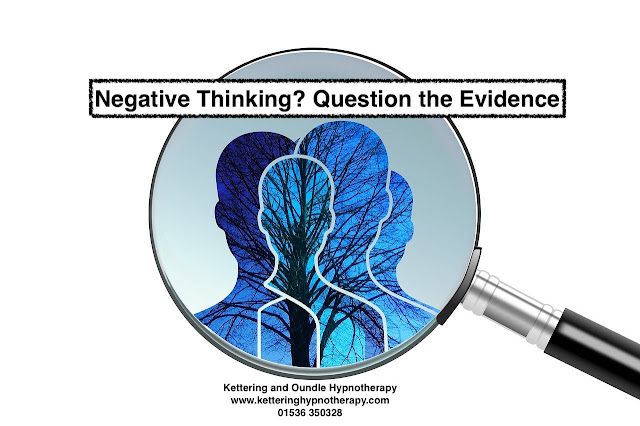Negative Thinking? Question the Evidence

In my blogpost Anxiety: The Mind’s Fake News , I explained how anxious and negative thoughts are largely based on false information. The fake mind news is the product of an overestimation of potential threat. We worry and feel stressed as a precaution to the perceived threat in our environment. Our mind tells us one thing and the reality is something different, but we better be on our guard because what if something bad were to happen. It is difficult to grasp sometimes that this thought process is not always at a conscious level. Negative thinking creeps in and we were unaware of why we should feel that way. The fake negative warning signal comes from within our mind with the result being a conscious battle with the reality of the situation. The Burglar Alarm In Our Mind A teenage client of mine once described it as a burglar alarm going off but there was no burglar in the building. You look for evidence of an intruder but there is no-one. You take a moment to reset only for the...
